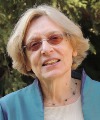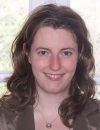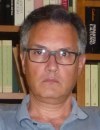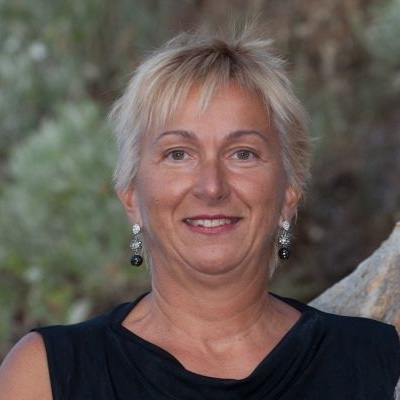About Us
 This project is devoted to constructing a crowd-sourced biographical dictionary of European translators in the long Eighteenth Century based on input from the research community.
This project is devoted to constructing a crowd-sourced biographical dictionary of European translators in the long Eighteenth Century based on input from the research community.
Its objective is to further understanding of a crucial moment in the history of European culture through a study of translation.
The Eighteenth Century saw both the development of national cultures and identities helped by the rise of vernacular languages as vehicles of learned discussion, and a transnational movement generally known as the ‘Enlightenment’.
The international exchanges in the European Republic of Letters were made possible by translation, which continues to be a vital tool today for the existence of both a common European culture and diverse national cultures.
Its importance is realised by those who wish to defend their own language and culture against the dominance of a simplified form of English in many scientific fields. Study of the eighteenth-century practice of translation and its role in bringing languages and cultures into contact is therefore vital for understanding the history of Europe.
However, research is hampered by lack of information about translators and the conditions in which they worked. Thus a database pooling the scattered existing information is a first step to undertaking this study. Each entry will provide information on and individual translator and all the biographical information available on him/her; detailed bibliographical information concerning his/her translations; details of any other writings. As the database grows, thanks to input from the community of scholars, it will be an important source of information on, for example:
- individual translators, their education, careers, publications and personal circumstances
- the number of translations linked to particular historical events and developments and the history of their publication centres of translation
- the European circulation of particular works
- It will therefore facilitate research on the circulation of knowledge and ideas and the construction of European and national identities, and will throw light on the politics of language interaction.
Who we are
 Ann Thomson
Ann Thomson

Ann Thomson is Professor emerita of Intellectual History at the European University Institute. She works on the intellectual history of the long Eighteenth Century, in particular on the 'natural history of man' and the circulation of ideas and cultural exchange, including between Europe and the Muslim world. Recent works include Bodies of Thought: Science, Religion, and the Soul in the Early Enlightenment, Oxford University Press, 2008, L’âme des Lumières, Champvallon, 2013, Cultural transfers: France and Britain in the long eighteenth century, ed. with Simon Burrows and Edmond Dziembowski, Voltaire Foundation, Oxford, 2010, The Enlightenment in Scotland : national and international perspectives, ed. with Jean-François Dunyach, Voltaire Foundation, Oxford, 2015
Read More Alessia Castagnino
Alessia Castagnino

Alessia Castagnino, attualmente Marie Curie Fellow presso lo European University Institute e ricercatrice post doc presso l'Università della Repubblica di San Marino (progetto di ricerca dedicato a 'Il ruolo di mediazione culturale dei traduttori. Il caso dei Gesuiti nel Settecento italiano'), si è formata presso l'Università di Torino, dove ha conseguito nel 2009 la laurea specialistica in Storia Moderna (titolo della tesi “To please and to enlighten: il metodo storico di William Robertson tra impegno civile ed esperienza intellettuale”, relatore professor Giuseppe Ricuperati). Nell'aprile del 2014 ha ottenuto presso l'Università Ca' Foscari di Venezia il titolo di dottore di ricerca in Storia sociale dell'Europa dal Medioevo all'Età contemporanea, discutendo la tesi “Per uno studio storico sulle traduzioni. Le traduzioni italiane dei 'classici' dell'Illuminismo scozzese (1765-1838)” (tutor professor Mario Infelise) ed è stata borsista post dottorato presso la Fondazione Luigi Einaudi di Torino. Le sue ricerche si concentrano in particolare sulla storia culturale ed intellettuale del XVIII secolo, con un interesse specifico per lo studio delle traduzioni.
Read More Rolando Minuti
Rolando Minuti

Laureato in Lettere presso l'Università di Pisa, è stato allievo del corso di perfezionamento e successivamente ricercatore presso la Scuola Normale Superiore di Pisa. Wolfson Fellow della British Academy nel 1983, ha svolto successivamente attività di ricerca in Inghilterra e in Francia. E' attualmente professore ordinario di Storia Moderna presso il Dipartimento di Storia, Archeologia, Geografia, Arte e Spettacolo (SAGAS) dell'Università di Firenze; coordinatore del settore di Storia Moderna del Dipartimento SAGAS e membro del Collegio di docenza del Dottorato di ricerca in Studi storici (Università di Firenze e Siena); corresponsabile del Laboratorio di Storia Moderna ( http://labstormod.wordpress.com ) del Dipartimento SAGAS dell'Università di Firenze; coordinatore dell'Unità di ricerca 'Modern Transcultural Studies - Studi transculturali sull'età moderna' del Dipartimento SAGAS; coordinatore del seminario interuniversitario (EUI, SAGAS, SNS) 'Translating Cultures'; presidente del Centro di Servizi Culturali per Stranieri dell'Università di Firenze (http://www.ccs.unifi.it/); coordinatore di accordi di collaborazione culturale e scientifica con varie istituzioni universitarie estere (Messico, Colombia, Corea del Sud, Cina, Giappone). E' membro del Consiglio direttivo e del Consiglio di amministrazione della Société Montesquieu, e del Comitato di direzione del progetto di edizione delle Oeuvres di Montesquieu (ENS Editions - Classiques Garnier); membro del Comitato esecutivo e segretario generale della SISSD (Società Italiana di Studi sul Secolo Diciottesimo); direttore responsabile della rivista elettronica 'Diciottesimo secolo' (organo della SISSD); direttore responsabile della rivista elettronica Cromohs. E' membro del Comitato di direzione della collana «Identità e alterità nell'Europa moderna. Ricerche e documenti di storia della cultura» (Napoli, Bibliopolis). Si occupa di problemi di storia intellettuale e culturale europea nell'età dell'Illuminismo, con una prevalente attenzione al tema dell'osservazione delle società orientali, al problema del confronto con la diversità culturale, alle forme della riflessione storiografica, alla riflessione sulla nozione di civiltà. Dedica inoltre attenzione ai rapporti tra le nuove tecnologie della comunicazione e gli orientamenti della didattica e della ricerca storica.
Read More Luisa Simonutti
Luisa Simonutti

Luisa Simonutti is Primo ricercatore (senior research fellow) in philosophy at the Italian National Council for Scientific Research (CNR) in Milan.
Her interests cover numerous aspects of seventeenth- and eighteenth-century philosophy and religion; Her focus lying not only on thinkers such as Spinoza, Locke or Bayle and Hume, but also on figures still largely consigned to the fringe of scholarship in spite of their importance for cultural transfer and in the field of the history of emotions in the late seventeenth and early eighteenth centuries.
She is the editor of numerous books including, recently,
La centralità del dubbio (Florence: Olschki, 2011);
Anomalie dell'ordine. L'altro, lo straordinario, l'eccezionale nella modernità. (Roma: Aracne, 2013);
Religious obedience and political resistance in the early modern world Jewish, Christian and Islamic philosophers addressing the Bible (Thurnhout: Brepols, 2014)
and Le masque de l’écriture. Philosophie et traduction de la Renaissance aux Lumières (Genève: Droz, 2015).
